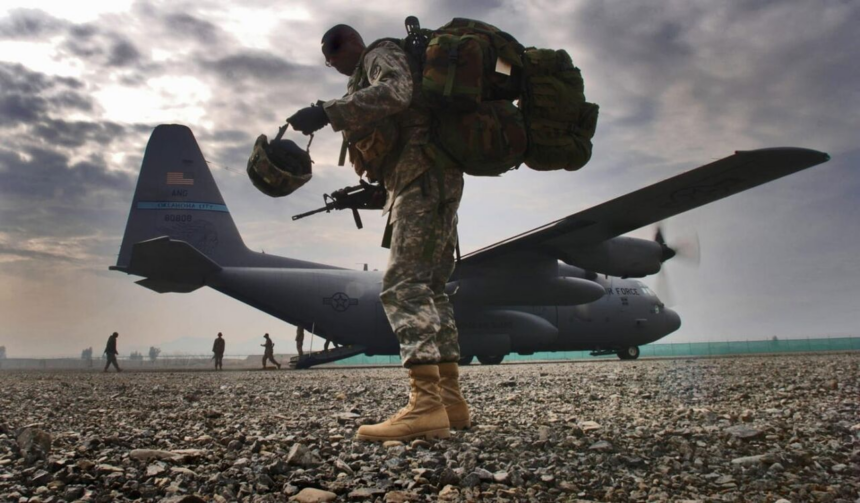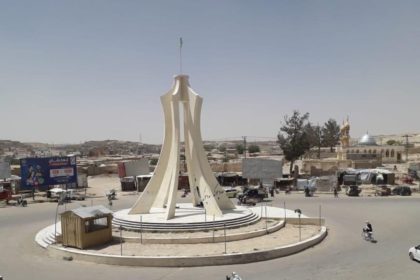RASC News Agency: The U.S. government is reportedly reassessing options to regain access to Afghanistan’s Bagram Air Base, a move that reflects Washington’s deepening unease over the security vacuum left in the wake of its 2021 withdrawal. According to Foreign Policy magazine, American defense officials are exploring a range of scenarios, from direct negotiations with the Taliban to partnerships with third states such as Qatar, the United Arab Emirates, or Uzbekistan. Another possibility under review involves handing the base’s management to a multinational civilian-military consortium an arrangement designed to minimize the Taliban’s role while maintaining strategic oversight.
Military sources in Washington have confirmed that contingency plans for a possible re-entry into Bagram already exist. These include placing more than 10,000 U.S. special forces on standby for rapid deployment. Former U.S. President Donald Trump, echoing widespread criticism of the chaotic withdrawal, has insisted that his administration would have reclaimed the base outright, calling Bagram a “strategic asset that should never have been surrendered to the Taliban.”
The rationale behind these deliberations is rooted in mounting security concerns. Since the U.S. exit, Afghanistan has spiraled into a breeding ground for extremist groups, most prominently ISIS-K, whose operations have expanded under the Taliban’s lax governance. Despite its promises, the Taliban has proven either unwilling or incapable of curbing jihadist networks, thereby transforming Afghanistan once again into a potential launchpad for international terrorism. The steady rise of targeted attacks on civilians and the Taliban’s documented ties with militant factions have only reinforced fears that Afghanistan under their rule is destabilizing rather than stabilizing the region.
For now, the Taliban have publicly rejected any U.S. presence at Bagram, portraying themselves as guardians of Afghanistan’s sovereignty. Yet this posturing masks their internal fragility. The regime is crippled by international sanctions, profound economic collapse, and bitter rivalries between factions loyal to Haibatullah Akhundzada and those aligned with Sirajuddin Haqqani. Analysts argue that these vulnerabilities make the Taliban increasingly susceptible to backroom deals, particularly when financial or diplomatic incentives are involved. In effect, the Taliban’s “rejection” of Washington’s overtures may be more of a bargaining tactic than a principled stand.
Trump’s recent declaration that Washington should “take back Bagram” has reverberated through international policy circles, eliciting strong reactions from regional powers. Iran, China, and Russia have all condemned the idea, warning that a U.S. return would ignite a new cycle of instability. Yet their objections are not rooted in concern for Afghanistan’s sovereignty but in their own geopolitical calculations. A restored U.S. foothold at Bagram would directly challenge their ambitions for influence in Central and South Asia, constraining both their military and economic maneuvering.
Beyond the immediate military calculus, Bagram embodies something far larger: it is a symbol of the strategic vacuum left by Western withdrawal and the Taliban’s catastrophic mismanagement. Once the linchpin of NATO’s counterterrorism operations, the base has since become a stark reminder of how swiftly Afghanistan was abandoned to authoritarian rule. Today, its fate represents the intersection of competing global interests Washington’s quest to restore counterterrorism capacity, regional rivals’ efforts to block U.S. influence, and the Taliban’s desperate attempt to project authority despite their crumbling domestic legitimacy.
What is undeniable is that the Taliban have failed to provide even the most basic assurances of stability. Far from consolidating power, their governance has deepened Afghanistan’s humanitarian collapse, strangled its economy, and alienated its population through gender apartheid and repression. In this context, the debate over Bagram is not merely about a base; it is about whether the international community is prepared to concede Afghanistan’s future to a regime whose only exports are extremism, poverty, and isolation.
For Washington, the question of Bagram may ultimately determine more than counterterrorism leverage it may signal whether the United States accepts the Taliban as a permanent reality or chooses to reassert a role in shaping Afghanistan’s trajectory. For Afghanistanis, however, the tragedy lies in the fact that their sovereignty, once again, is being defined not by their will, but by the failures of a regime that thrives on silencing them.






